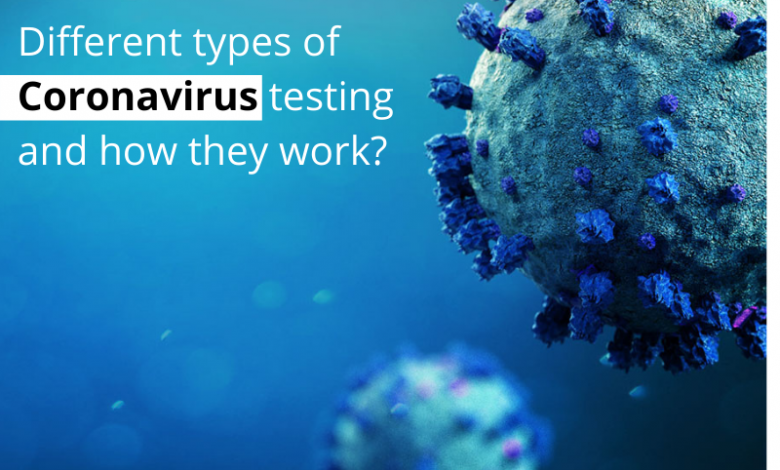Different Types of Covid Testing and How they Work?

Throughout the Covid-19 crisis, the importance of reliable, accessible testing to identify the disease has become increasingly apparent. Tests for Covid-19 can be divided into antigen or antibody tests. Both of these use different types of samples to identify different signs of the SARS-CoV-2 virus. In addition, Britain’s government has expanded a programme of coronavirus testing in London to reduce a wave of staff absences created by a high number of new cases, and strict rules on isolation for people who they might have infected.
Getting the right Covid-19 test
The right test depends on the goal, such as confirming an active Covid-19 infection, finding asymptomatic or pre-symptomatic people who might be spreading the virus, or deciding whether someone previously had Covid-19. There is not a dedicated testing approach that is going to meet every requirement and solve every problem.
Different types of Covid-19 test
- Polymerase chain reaction (PCR) tests are sent off to a lab to diagnose the disease.
- Lateral flow tests can diagnose Covid-19 on the spot but are not as accurate as PCR tests.
- Antibody tests can’t diagnose active infection but they can help to tell if a person has immunity to Covid-19.
What is PCR testing?
PCR tests are used to quickly screen for the presence of viral RNA. This RNA will be detachable in the body before antibodies are produced, or symptoms of the disease are present. It means that tests can determine whether or not someone has the disease very early on in their illness.
During this test, a healthcare worker will collect mucus from the nose or throat using a swab. Turnaround time varies from minutes to days, or longer. In addition, it depends on whether the sample is analyzed on-site or sent to an outside lab. This test is considered as the gold standard; however, in recent months, home test kits have become available that allow people to collect their own sample and determine whether they are infected or not.
By speeding up PCR testing to screen broad swathes of nasopharyngeal swab samples from within a population, public health directors can get a clearer picture of the spread of a disease like Covid-19. However, PCR testing still has its caveats. These types of Covid-19 tests are required to be sent away to the laboratory for analysis. It means that it can be days for people to find out their results.
What is a lateral flow test?
Lateral flow tests are similar to PCR tests. Both tests are antigen tests designed to pick up active Covid-19 infection rather than antibodies to the disease. During a LFT, a nasopharyngeal sample is placed on a small absorbent pad and then drawn through a capillary line to a strip coated in antibodies, which binds to the SARS-CoV-2 proteins. It will reveal a coloured line on the test, indicating infection.
The advantage of having an LFT test over a PCR test is that it does not need to be sent away for confirmation; instead, it gives a result within 15 to 30 minutes. While this test is good for speed, it is not so good in accuracy. A study conducted in Europe and the US showed a wide variance in accuracy between different brands of LFT. Thus, while LFTs for mass asymptomatic screening has been encouraged in countries like the UK, experts have cast doubt on how useful these types of Covid-19 tests really are in this context.
What is antibody testing?
An IGG quantitative antibody test looks for antibodies to the coronavirus. Antibodies are proteins that your immune system form to fight off the infection. A Covid-19 antibody test cannot identify existing coronavirus infection. Instead, it shows whether you have been contaminated at some point in the past, even if you were infected months ago. Antibodies do not become detachable in the body until at least several days after contamination has started.
There are no FDA-approved, at-home antibody tests. You will have to visit a healthcare specialist who will take a blood sample through a finger prick, or draw blood from a vein in your arm. Most of these tests are performed at a central lab, taking a couple of days to process. However, the FDA has approved the first antibody point-of-care coronavirus test, making it possible for doctors’ clinics, hospitals, urgent care centres and emergency rooms to get answers within 15 minutes using blood from a person’s finger.
You should not take an antibody test until at least 14 days after the start of symptoms. If you test too early while your immune system is still building its defense, it may not give an accurate result. However, sometimes antibody testing is performed along with viral testing when someone seeks care late in their illness. It may also help verify the analysis of Multisystem Inflammatory Syndrome in children, a condition linked to Covid-19. Antibody testing has a significant role to play in the current Covid-19 pandemic because it can offer information on the prevalence of the disease in the population, and the frequency of asymptomatic infection.
The bottom line
Since Covid-19 began its rampant spread, people slowly came to learn about the confusing array of available testing options. So, now that you have complete information about the various Covid-19 testing methods, you can determine which test is right for you.




